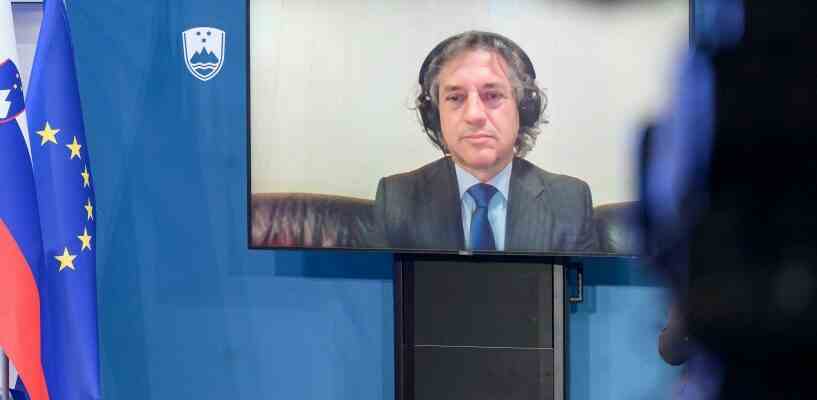The most important news from Slovenia, which hit the headlines after the parliamentary elections on Sunday, was of course the victory of the left-liberal freedom movement (Gibanje Svoboda) under its founder Robert Golob, which was surprising even for insiders.
The party is new; Her boss, former board member of the partly state-owned Slovenian energy company Gen-I, only launched “Svoboda” in January. Just three and a half months later, he got a whopping 34 percent – and thus, in absolute numbers, the most votes that a group in Slovenia’s notoriously fragmented and fragmented party system has been able to garner since independence.
In polls, Golob’s re-establishment was neck and neck with Prime Minister Janez Janša’s right-wing populist Democratic Party (SDS). At just under 24 percent, the vote was hardly worse than in previous elections, but given the strength of the still relatively unknown election winner and new beacon of hope, it quickly became clear on Sunday evening that long-term Prime Minister Janša would not make it back into office. The deputy head of the SDS, Aleš Hojs, commented on the result on television with some condescension. You have to congratulate the “relative election winner”. Apparently “people had put their trust in a new face again”.
The fact that many voters were not just longing for a new face and a new party, but also for a new political culture that could calm the poisoned political climate and lead the country back to a pro-European, liberal course was also reflected in the turnout. This was 13 percentage points above that of 2018. Die Linke Tageszeitung Dnevnik euphorically described this on Monday as the “most positive news” of the election, showing that “democracy, freedom, autonomy and justice” had been given the chance to rehabilitate themselves in Slovenia.
That’s exactly what Golob said himself: Before the election, he had spoken of a “referendum on democracy in Slovenia,” promising a green energy transition and sustainable politics. After the sensationally good result for his party became known, he commented on social media; Due to a corona disease, Golob could not take part in the election party in Ljubljana. The high turnout shows, he said, “that people really want changes. They trust that only we can bring about these changes.”
Prime Minister Janša apparently created his successful opponent himself
His predecessor, Janez Janša, shaped Slovenian politics for almost three decades. The former communist youth functionary founded the first major opposition party after independence, has been prime minister three times and has repeatedly been confronted with allegations of corruption, for which he was convicted once. He had hoped to ultimately take over the government this time, as before, with a motley coalition of tiny parties.
But not only did two groups led by prominent politicians – ex-Prime Minister Alenka Bratušek and ex-Prime Minister Marjan Šarec – fail at the four percent hurdle, so that the number of possible partners fell. Janša also apparently created his own strongest opponent with an action typical of him: he is said to have helped ensure that Golob’s mandate on the board of the fifty percent state-owned energy company Gen-I was not extended. Whereupon he decided to move from his hometown Nova Gorica to the big stage in Ljubljana.
In Slovenia, there had recently been repeated large-scale demonstrations against Janša’s authoritarian behavior. Under him, freedom of the press was restricted; his government cut funding for the state news agency, took critical journalists to court and welcomed the takeover of Slovenian media by Hungarian oligarchs. His proximity to Viktor Orbán, whose illiberal democracy found its counterpart in Janša’s politics, was viewed just as critically as his anti-EU positions. The high point of the tensions was certainly an appearance by the Prime Minister in Brussels at the time when Slovenia held the Council Presidency in 2021. Janša duped a committee of the EU Parliament with a propaganda film and insults.
Robert Golob is now likely to form a coalition with the Social Democrats, whose boss, the experienced MEP Tanja Fajon, is being traded as the new foreign minister. Since his party was only recently founded, there is a lack of structures and anchoring in the country. Political observers are therefore assuming that it will not be easy for Svoboda to translate the early praise that the good election result means into politics.
Relief was felt abroad and in Brussels that Slovenia is now likely to return to a pro-European course. Green MEP Daniel Freund pointed out on Twitter on Monday that Europe looked different before the allegedly corrupt right-wing populists Bojko Borissow in Bulgaria, Andrej Babiš in the Czech Republic and now Janez Janša in Slovenia were voted out within the past twelve months, noting : “You don’t win elections with cheap anti-EU populism.”

